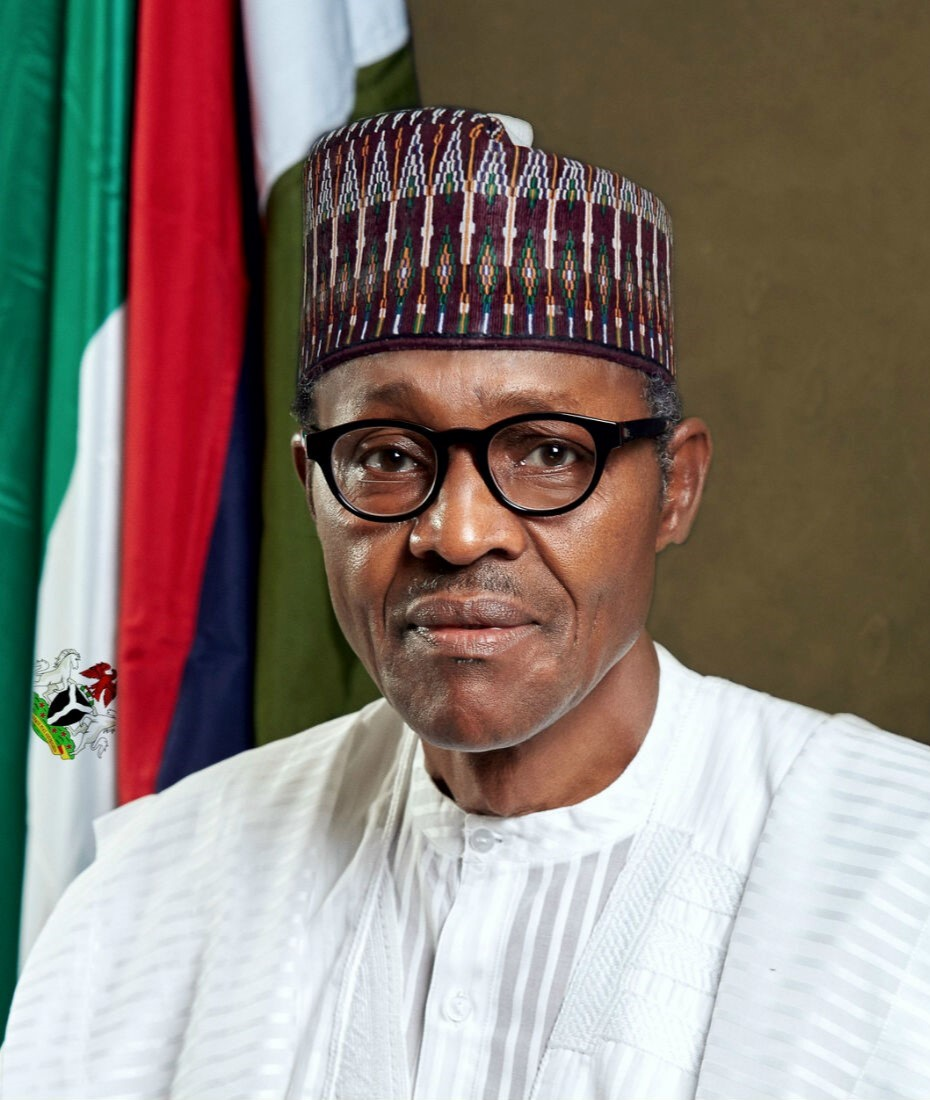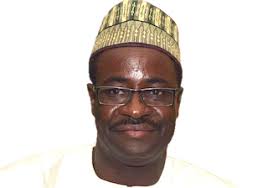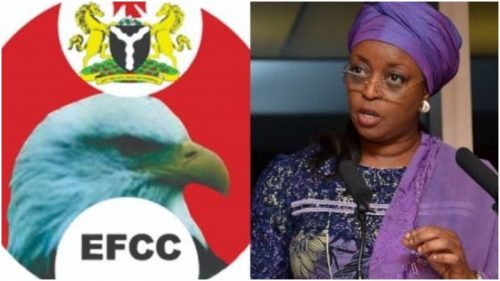2018 Budget Saga: Between Buhari and Saraki

Finally, President Muhammadu Buhari has signed the 2018 Appropriations Law. The signing which happened on June 20 has generated a lot of controversies owing particularly to the observations which the president made at the signing ceremony, observations which were of great concern to patriotic Nigerians who wish for the country to run her processes as democratically possible as provided by our constitution.
While the president emphasised on the fact that the budget was not passed by the National Assembly until after seven months of its presentation to them, giving the impression that the legislative arm unduly delayed its passage, it is instructive to also note that the president did not, refused, neglected and or deliberately delayed signing the budget until over one month after it was passed by the national assembly.
The fact that President Muhammadu Buhari had said in his address at the signing ceremony that he “had hoped that the usual legislative review process would be quick” implies that he knows that the passage of a budget by the National Assembly is not a quick fix thing but a “review process”, a phrase which implies that there are works to be done to ensure that every –i is dotted and every –t is crossed.
Part of this “legislative review process” includes the defence of estimates before the various committees of the National Assembly working on the budget by concerned MDAs.
But unfortunately, we are in a period when the executive arm of government has unnecessarily pitched itself against the legislature to the extent that appointees of the president flagrantly ridicule the institution of the National Assembly with nauseating impunity.
It is this cue from recalcitrant appointees of the president that the MDAs must have taken when they refused to go to the national assembly to defend their budgets thinking that the legislature would pass it anyway since they have a godfather in President Buhari whose word they assume is law and whose proposals dare not be tinkered with as if we run a dictatorial democracy.
In the same vein, except for those appointments whose spread are subject to legislative scrutiny for confirmation and spread by the constitution, President Buhari’s appointments are reputed to be the most lopsided, clannish, cryonic and parochial in the recent political history of our nation.
Upon that, we have government appointees who have continued to remain in office and expend our common funds without getting the confirmation of the legislature to remain in office. That is the set up of the executive the legislature is left at its mercy.
Despite this blatant undermining of the legislative arm by the executive particularly the MDAs in this case, The Senate President, Dr Bukola Saraki and his House of Representatives counterpart, Rt Hon Yakubu Dogara, still bent over backwards and led a delegation of national assembly members to Aso Villa to appeal to the president to order concerned ministers and MDAs to go to the national assembly and defend their budgets as part of standard “legislative review process” world over. This was as late as March this year, four months after the president laid the budget before the national assembly.
The implication of this fact is that effective work of the legislature on the budget did not take place until after the president gave the marching orders to his ministers and MDAs to go to the national assembly and do the needful.
This is in addition to the fact that, according to the national assembly, members of the executive were still bringing in new items for the budget even as late as April.
It is most unfortunate that we have allowed the executive to so badly demonize the legislature in this clime to the extent that what are normal legislative processes in other climes are made to be seen as inordinate here.
Even in much more advanced democracies, once the executive presents the budget to the legislature, the ministers and MDAs enter a frenetic mode of lobbying the legislature to convince them on why their estimates should either be allowed to remain without cuts or even increased if genuine reasons are given for the needed increase.
Consensus is built and what is considered right in the eyes of both the executive and the legislature are done in the overall interest of the nation. But we operate a different kind of democracy here.
At the signing ceremony, Buhari also said that “The logic behind the Constitutional direction that budgets should be proposed by the Executive is that, it is the Executive that knows and defines its policies and projects”.
While Buhari might be correct, the constitution also copiously and cogently provided for the national assembly to review the budget, and review means to increase, decrease or pass as submitted by the executive. Simply put, it can be tinkered with by the legislature!
What the constitution has in mind in this case on the part of both the executive and the legislature is that while the executive proposes the budget, it is expected that in performing its own role of checks and balances, the legislature would be carried along by the executive in its policies and projects so as to help the lawmakers make informed decisions on the budget or any other issue per time.
But when we have an executive that thinks the legislature is a toothless bulldog that exists only as a rubber stamp, the spirit of the constitution that expects the executive and the legislature to exist as independent but cooperative entities in their dealings is killed thereby throwing up avoidable frictions.
For example, in its explanation, the National Assembly said it stands by its decision to cut the FCT allocation by N7.5bn and gave reasons it did so. One of the reasons it gave was that “in the 2016 and 2017 budget cycle, there was a severe non-performance of the budgetary allocations to the FCT.
During the two years in question, over 50% of the funds that were allocated and released to the FCT were not utilized. These funds were ultimately returned to the treasury.
Hence, in order to ensure that scarce resources were allocated in accordance to ‘needs over wants’, funding for the FCT which has historically been under-utilised were allocated to other MDAs that have demonstrated the capacity to implement their allocation for the development of the nation and its people”.
In this case and probably as in others, there could have been genuine reasons or challenges why the FCT could not utilize its funds.
If the FCT had appeared before the national assembly committee on FCT to explain itself telling the lawmakers their challenges, things could have been sorted out and the lawmakers could even have helped in resolving whatever challenges they might be facing and militating against their now usual failure to make judicious use of funds allocated and released to them.
Sometimes, even when government appointees manage to appear before the Senate, for example, they seem to treat their appearance as a waste of time and of no effect whatsoever.
And that is because our executive has the warped mentality that the presidential system of government like ours runs on the supreme dictates of an aloof executive who must not be questioned, and they have generously demonstrated such mentality over time to the detriment of our democracy. This is the root of our challenges as a democratic nation and it is affecting our budgeting processes.
The truth of the matter is that, on the FCT case, the National Assembly is justified because the FCT under this current minister, Muhammad Bello, has shown unpardonable incompetence as he has almost run the FCT aground as critical infrastructure in the nation’s capital have almost all collapsed while budgetary allocations to the ministry are grossly underutilized.
In such a circumstance, having observed this while on oversight function, it would be politically inexpedient to expect the National Assembly to continue to appropriate funds for such a nonperforming ministry when there are other performing ones in dire need of such scarce funds.
Without a doubt, this administration has over time proved to have a knack for involving in illegalities and explaining away inanities. In April, without any recourse to the legislature, President Buhari approved the whopping sum of $1bn for the purchase of security equipment to fight Boko Haram and other insurgents.
After concerns were raised about this infraction, the executive, as an afterthought, said it was going to send a request for it to the national assembly for regularization. Where is such done?
So when the National Assembly states that “As part of the implementation of the 2017 budget, the contracts for 15 roads were awarded by the Federal Executive Council with no budgetary provisions”, it reminds one of the kind of executive we are dealing with here.
How long such unrelenting breach of our constitution by the Buhari-led administration will continue without consequence so as to save our democracy and preserve our democratic ideals is what one is yet to know.
Yet, this same legislature that should have pulled all the strings against the president and some of his appointees for these severe and several breaches of our constitution has chosen not to wield its big stick so as not to heat up the polity of an already fragile national psyche, yet, it is scandalized endlessly while the culprits keep beatifying themselves.
While much noise has been made about the increase in the budgetary allocation to the national assembly, critics of the legislative arm of government have turned blind eyes to the overall increase in the budget of the executive.
For example, while it has been highlighted and overemphasised that the national assembly increased its budget from N125bn to N139.5bn, such critics have remained quiet over a similar increase in the overhead budget of the executive which has increased over time from N163.3bn in 2016 to N219.8bn in 2017 and now N246bn in the 2018 budget.
Even at that, these increases which we have seen are not peculiar to the national assembly alone as even the judiciary also benefitted from it was predicated on increase in the international oil price used as a benchmark for the budget.
We have been made to know that there were robust discussions with representatives of the executive on how to spread the difference among the three tiers of government to the extent that the judiciary’s budget was also increased by the legislature from the original N100bn proposed by the executive to N110bn.
While critics see nothing wrong in the significant increases over two years in the overhead budget of the executive, they see everything wrong in that of the legislature as if the legislature has no responsibilities requiring financial commitments. More so, when one considers the fact of inflation and exchange rates between 2016 and now, the purported increase in the National Assembly budget is as good as zero.
Let us also not forget that no matter the name it is called, the executive still reserves the right and power to execute projects even if such projects are labeled constituency projects. So the hullaballoo about legislators “inserting projects of their own” so as to corruptly enrich themselves does not even arise.
Finally, the impression President Muhammadu Buhari tried to create that the National Assembly added “6,403 projects of their own” to the budget does not hold water as the referenced projects could not have belonged to the lawmakers as long as they are projects impacting the lives of ordinary Nigerians.
With the spread, “their own projects” here represent the increases to such vital organizations as the NDDC, National Judicial Council, Public Complaints Commission, National Human Rights Commission, the extra N2bn allocated to the Enugu – Port Harcourt Road, and the allocations to 15 roads whose contracts were awarded by the executive without budgetary provisions. All these are still within the purview of executive functions.
In conclusion, Nigerians should be asking the more important questions of why the executive did not utilize the whopping sums of N12.5bn and N7.5bn appropriated for the 2nd Niger Bridge in the 2016 and 2017 budgets respectively, and failure to implement such other critical projects across the country.
It is time for the legislature to begin to demand for level of budgetary implementation from the executive as a yardstick for measuring the MDAs to be allocated funds in the new budget cycle so that the knotty issues of abandoned or non-execution of projects for which funds were allocated would reduce to its barest minimum, and our budgetary processes become more meaningful to the ordinary Nigerian.
Based on the foregoing, Dr Bukola Saraki, as chairman of the National Assembly, deserves accolades for how he has been able to steer the legislative arm through the turbulent waters of executive intimidation, harassment, calumny and media manipulation against it while it still maintains political equanimity, levelheadedness and avoided heating up the polity by not unleashing its enormous powers to defend itself in the face of continued extreme provocation.
jrndukwe@yahoo.co.uk; Twitter: @stjudendukwe










